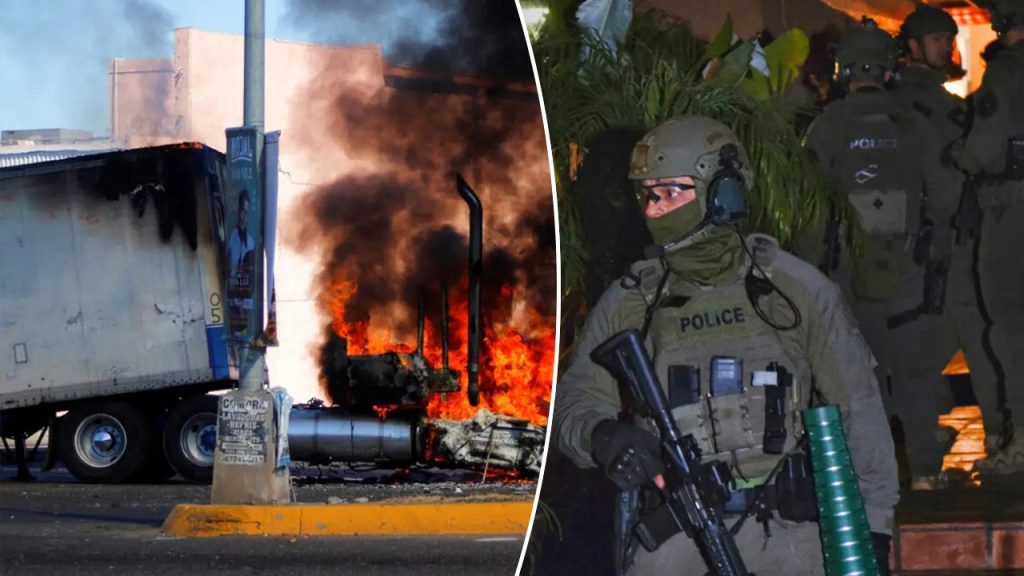Mexico’s most dangerous cartels, the Jalisco and Sinaloa cartels, have infiltrated all 50 states in the United States, leading to a drug crisis of historic proportions. These cartels flood American cities with meth and fentanyl, using violence to protect their turf. The cartels have effectively eliminated competition in the drug market, dictating the flow of illicit drugs into the country. Synthetic drugs like fentanyl are their weapon of choice due to their potency, affordability, and ease of transport.
The cartels’ global reach extends beyond Mexico and the U.S., with thousands of cartel-linked dealers currently operating in the U.S. Recent arrests of cartel members, such as the “Skittles Man” in Florida, have highlighted the scale of their operations. These arrests have unveiled large quantities of rainbow-colored fentanyl pills, weapons smuggling arrangements, and substantial drug seizures. The cartels have created a climate of fear and violence, leading to tens of thousands of deaths from fentanyl-related overdoses in the U.S.
Law enforcement agencies, led by the DEA, have launched operations to combat the cartels’ influence in the U.S. “Operation Last Mile” and “Operation Overdrive” target violent drug dealers responsible for the fentanyl poisoning epidemic. These operations have resulted in thousands of arrests and the seizure of millions of fentanyl pills, pounds of fentanyl powder and methamphetamine, firearms, and significant amounts of cash. The DEA is prioritizing the defeat of the Sinaloa and Jalisco cartels to address the growing drug crisis in the United States.
Mexican President Andrés Manuel López Obrador has faced criticism for downplaying cartel violence and criminal activity in Mexico. Despite pressure to address the cartels, his administration has remained firm on not allowing foreign intervention in Mexican territory. A recent opportunity to weaken the Jalisco cartel was missed when El Mencho’s brother was captured and released within days due to legal technicalities. High-profile incidents, like the capture of El Chapo’s son in 2019, have demonstrated the terror tactics employed by the cartels to secure their objectives.
The Jalisco cartel’s tactics of achieving its goals without extensive violence have highlighted the organization’s sophistication and formidable presence. The use of fear and intimidation, rather than brute force, has allowed the Jalisco cartel to exert its influence and maintain control over its operations. Despite limited violent incidents following the arrest and release of El Mencho’s brother, the menacing reach of the Jalisco cartel continues to pose a grave threat to Mexico and the United States. The escalating drug crisis fueled by cartels like Jalisco and Sinaloa demands a coordinated and relentless effort from law enforcement agencies to combat their operations effectively.
In conclusion, the influence of Mexican cartels like Jalisco and Sinaloa in the United States poses a significant threat to public safety and security. The widespread distribution of synthetic drugs like fentanyl has led to a deadly drug crisis in the country, resulting in tens of thousands of deaths from overdoses. Law enforcement agencies, led by the DEA, are conducting operations to target cartel members and disrupt their operations. Despite efforts to combat the cartels, the complex nature of their operations and the political challenges in Mexico present obstacles to eradicating their influence completely. The ongoing battle against the cartels requires a multi-faceted approach involving cooperation between U.S. and Mexican authorities to address the root causes of the drug crisis and dismantle the cartels’ organizational structures.


